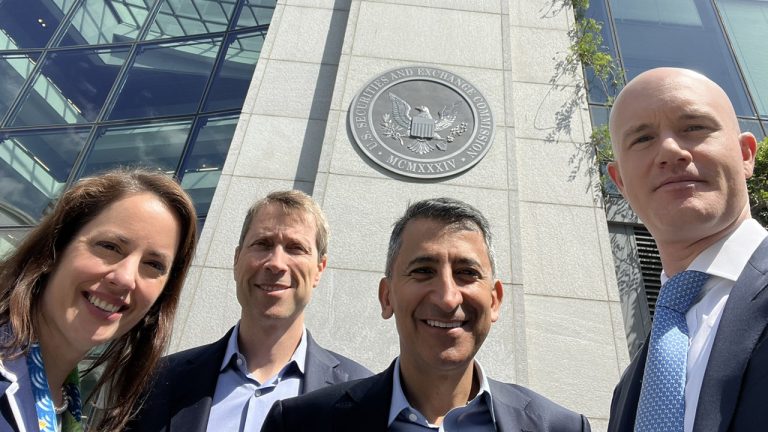
On April 24, 2023, Coinbase announced that it had filed an action in federal court requesting the U.S. Securities and Exchange Commission (SEC) to respond to their petition. The petition, submitted in July 2022, requested the commission to propose and adopt rules governing the regulation of digital assets.
Coinbase Requests SEC to Respond to Petition for Digital Asset Regulation
The cryptocurrency exchange Coinbase has filed a court action to press the U.S. Securities and Exchange Commission (SEC) about its July 2022 petition requesting regulatory guidance. In an announcement on Monday, Coinbase’s chief legal officer, Paul Grewal, emphasized that over 1,700 entities and individuals submitted comments in support of the request for clarity.
The company believes that regulatory clarity in the crypto space is long overdue. Despite the securities regulator initiating a slew of potential regulatory enforcement actions, crypto firms have not been informed of how the SEC believes the law applies to their business.
“From the SEC’s public statements and enforcement activity in the crypto industry, it seems like the SEC has already made up its mind to deny our petition. But they haven’t told the public yet. So the action Coinbase filed today simply asks the court to ask the SEC to share its decision,” Grewal wrote.
The firm’s chief legal officer added:
It is also unusual for an agency to bring enforcement actions based on a view of the law that it has not yet shared formally with the public. Again, Coinbase is not asking the Court to instruct the agency how to respond. We are simply requesting that the Court order the SEC to respond at all, which they are legally obligated to do.
Coinbase’s announcement follows the CEO’s recent tweet that said a few members of the company flew to the SEC offices in Washington. “Met with the SEC today. We’ll continue pushing for a clear rule book in the U.S. for crypto regs,” Brian Armstrong wrote. “The U.S. can’t afford to fall behind on this important technology to update the financial system.”
The firm noted in its Monday announcement that the legal action filed is part of a “multi-year, continual plea to leaders in Washington for clear rules of the road.” Coinbase acknowledges that regulations are necessary and highlights how the company has implored authorities to establish such guidelines for better clarity. Coinbase seeks “basic rulemaking,” and while the federal court action seeks to address the impasse regarding the petition, the company said it will be pursued until the end.
What are your thoughts on the legal battle between Coinbase and the SEC over the need for clear regulatory guidelines in the crypto industry? Share your thoughts about this subject in the comments section below.
from Bitcoin News https://ift.tt/m1lIJyO
Comments
Post a Comment